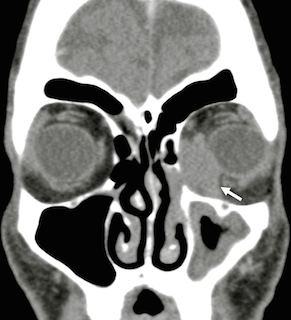Emory rheumatologist Arezou Khosroshahi was the lead author on a differential diagnosis case report in New England Journal of Medicine published in October, which describes an example of IgG4-related disease. This autoimmune condition’s name was agreed upon only recently, at an international conference she co-directed in 2011.
This review calls IgG4-related disease an “orphan disease with many faces.â€Â It sounds like each case has the potential to be an episode of House. As Khosroshahi explains:
“Most patients undergo invasive procedures for resection or biopsy of the affected organ to exclude other conditions. Unfortunately, most of those patients get dismissed by the clinicians, given the good news that their disease was not malignancy. Many of them have recurrence of the condition in other organs after a few months or years.â€
In the case report, a woman was admitted to Massachusetts General Hospital, because of shoulder and abdominal pain and an accumulation of fluid around her lungs. Surgeons removed a softball-sized mass from her right lung. The mass did not appear to be cancerous, but instead seemed to be the result of some kind of fibrous inflammation, and the patient was treated with antibiotics.
Several months later, the woman returned complaining of breathing problems and chest and hip pain. Doctors eventually diagnosed her with IgG4-related disease and successfully treated her with rituximab, a drug used with some types of cancer and autoimmune diseases.
In addition to the lung, the disease can affect the pancreas, kidneys, salivary glands, major blood vessels or skin. Khosroshahi notes that while the patient in the NEJM report experienced pain from the lung mass, the growths that occur are not intrinsically painful. She sent Lab Land a striking CT scan of an IgG4-related mass close to the eye (below), which was mistaken for lymphoma.
Khosroshahi is establishing a center for clinical care and research on IgG4-related disease at Emory. Much concerning this condition is still up in the air – it is named after IgG4, the least abundant subclass of the antibody isotype IgG, but IgG4 is not a reliable biomarker, she says. In addition, basic information about the disease’s incidence and prevalence remains incomplete.
About the author
Science Writer, Research Communications qeastma@emory.edu 404-727-7829 Office


